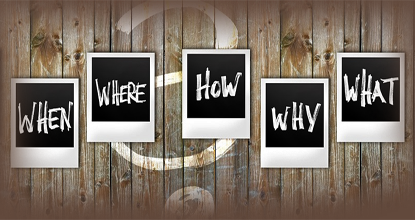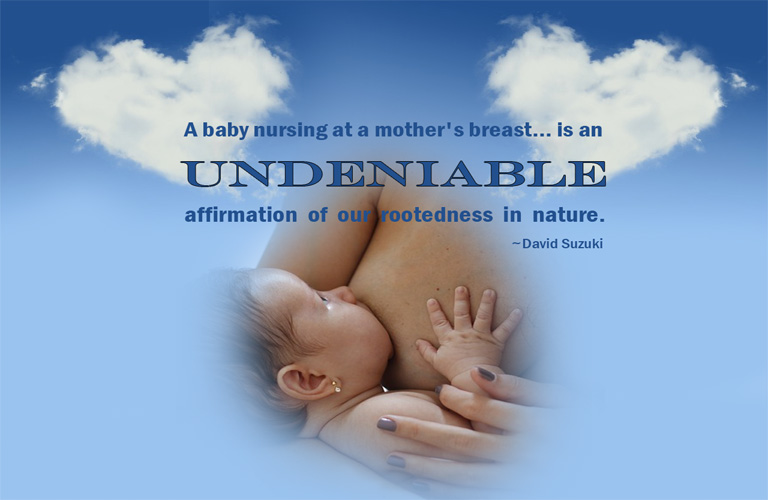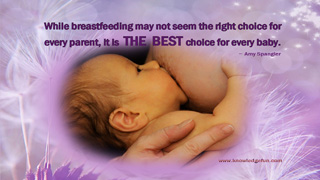Breastfeeding & Diet
Do not try to lose weight while you are breast-feeding unless your doctor says it is okay. Health professionals generally do not advise breast-feeding mums to diet, in fact they advise lactating women to increase their energy requirements for an extra 450-550 calories a day, depending on the period of lactation.
Breast-feeding women should eat nutritious meals with a variety of foods because breastfeeding is an energy-demanding process and nutrients consumed will affect the quality of the breast milk. Proper nutrition will help ensure your child's normal growth and development. Some women need to take iron supplements to replenish the iron transferred to breast milk. Consult your physician for advice. Maintain a healthy diet and lifestyle, both for your own good and to ensure that your baby is getting the healthiest breast milk possible. Keep in mind that most weight loss diets would not provide enough calories or calcium.
Try to pay attention to your body's signals and make sure to drink 6 to 8 glasses of liquid daily to replenish the fluids lost during breastfeeding. Many busy moms often ignore their thirst if there is nothing handy to drink. It is good idea to keep a drink handy where you usually nurse or work. Signs that you are not getting enough fluids include concentrated urine (stronger and darker than usual) and constipation (hard, dry stools).
Don't smoke, and avoid second-hand smoke. Smoking can cause reduced milk production and it may also cause vomiting, diarrhea, and restlessness in your breasted baby.
It is important to limit caffeine and alcohol intake, as these are passed on in breast milk. Consult your doctor about taking any prescription or over-the-counter medications, as these may pass through your breast milk to your baby. Try to avoid taking medications altogether unless it is absolutely necessary.







